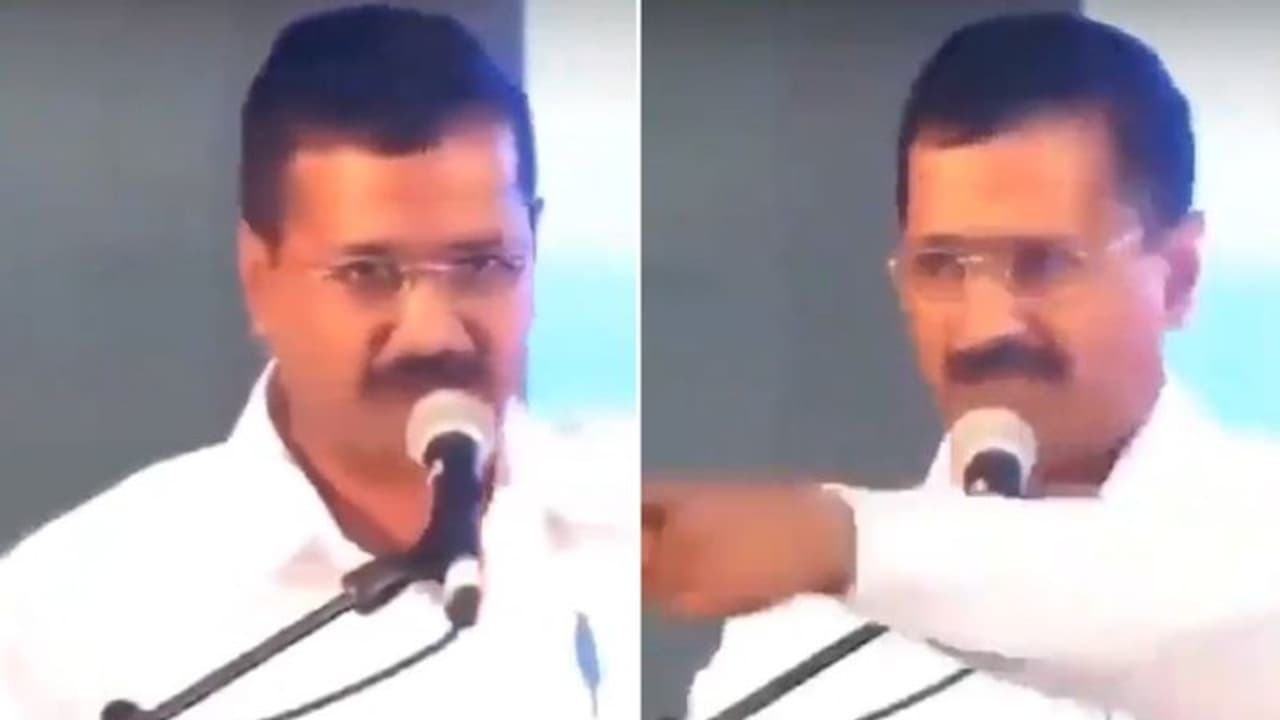After being apprehended by the ED, an old video of Arvind Kejriwal has surfaced, in which he firmly declares that he and his party members must face consequences, including imprisonment, if found involved in corruption, sparking widespread attention on social media.
In the midst of the relentless power struggle between the Aam Aadmi Party (AAP) and the Bharatiya Janata Party (BJP) in India's political arena, an old video featuring Arvind Kejriwal, the Chief Minister of Delhi, has resurfaced, sending shockwaves through the already tumultuous landscape. In this video, Kejriwal unequivocally declares that no one, regardless of their position or affiliation, should be spared if found guilty of theft. This resolute stance, however, has now come back to haunt him as he finds himself embroiled in a legal battle, accused by the Enforcement Directorate (ED) in a money laundering case linked to the excise policy.

The video, though undated, captures Kejriwal's stern words, affirming that if he or any member of his party were to engage in corruption, they should face the consequences – even if it means going to jail. This moral high ground, once a rallying cry for the AAP's anti-corruption crusade, now serves as a poignant reminder of the challenges and contradictions within the party's journey.
"If Manish Sisodia wakes up tomorrow and steals, then he doesn't mean anything to Kejriwal and he will have to go to jail. If tomorrow any of our MPs steal then they are not my own and will have to go to jail. If tomorrow any of our MLAs steal then he doesn't belong to us and will have to go to jail. And if tomorrow I steal, then even I don't belong to you and will have to go to jail," said Kejriwal in an undated video that has gone viral on X, formerly Twitter, following the Delhi CM's arrest by ED on Thursday.
The AAP's ascent to power in Delhi marked a significant shift in Indian politics, promising transparency and accountability. However, the AAP's governance has been marred by incessant clashes with the central government, particularly with regard to the distribution of power and authority. The tug-of-war between the Delhi government and the Lieutenant Governor's office has been a recurring theme, symbolizing the larger battle between the AAP and the BJP.
From jurisdictional disputes to administrative confrontations, the AAP's tenure has been fraught with challenges, often escalating into full-blown political showdowns. The Supreme Court's intervention, granting executive powers to the Delhi government in certain matters, momentarily tilted the scales in AAP's favor. However, the BJP's subsequent move to restore the LG's authority underscored the enduring nature of the power struggle.
Against this backdrop, Kejriwal's words in the viral video take on added significance. As he faces allegations of corruption, his past declarations of integrity serve as a stark contrast to the present reality. The irony is not lost on observers, as the AAP, once hailed as a beacon of probity, now grapples with allegations of malfeasance.
Moreover, Kejriwal's arrest by the ED further intensifies the political drama, fueling accusations of vendetta politics and conspiracy theories. The AAP paints itself as the victim of a concerted effort by the BJP to undermine its legitimacy and destabilize its government in Delhi. Conversely, the BJP seizes upon these developments to bolster its narrative of AAP's moral bankruptcy and incompetence in governance.
As the legal battle unfolds, the fate of Kejriwal and the AAP hangs in the balance, with implications extending far beyond Delhi's borders. The ongoing feud between the AAP and the BJP not only reflects the complexities of Indian politics but also raises fundamental questions about democracy, accountability, and the rule of law.
